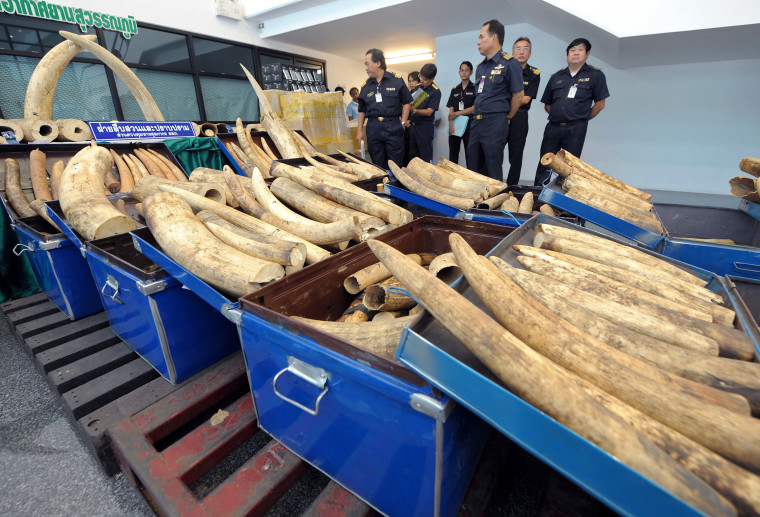Poaching and drought-related hunger have killed more than 100 of Kenya's famous elephants in the north of the country so far this year, conservationists say.
Zoologist Iain Douglas-Hamilton, who founded Save the Elephants, said the drought is Kenya's worst in 12 years. The dry conditions pose a serious threat to the large and majestic animals, whose striking silhouettes across Kenya's broad savannah draw around 1 million tourists each year.
"When (elephants) do not have enough food they also seem to be vulnerable to disease, their immune system weakens and they catch all sorts of diseases," Douglas-Hamilton said Monday. "Elephants, particularly the young and the old, have begun to die."
Poaching increased
Douglas-Hamilton also says poaching has increased, and links the surge to last year's decision by international regulatory body CITES to allow Zimbabwe, Botswana, Namibia and South Africa to conduct one-off sales of their confiscated ivory stockpiles.
The body had previously banned such sales. Conservationists fear illegal ivory may find its way into those stockpiles.
Although Kenya was not included in the sale, Douglas-Hamilton said any ivory sales immediately push up global demand, since elephants could be killed in Kenya and their tusks smuggled into a foreign stockpile.
Around 23,000 elephants live in Kenya but populations can be devastated by poaching within a couple of years. A recent survey in Chad showed its elephant population had declined from 3,800 to just over 600 in the past three years.
"The drought is one of nature's big events," he said. "It hits all animals, elephants, people and others but the ivory trade is much more serious and could do much more damage if it remains unchecked."
Patrick Omondi, head of conservation at the Kenya Wildlife Service, has said the number of elephants killed for their tusks in Kenya could double this year over last. That follows a doubling in 2008 over 2007, he added.
A combination of high ivory prices and the fact that wildlife crime is a low priority for most law enforcement agencies means that poaching and trafficking has attracted the interest of international criminal syndicates, the wildlife service said.
More on: Kenya
